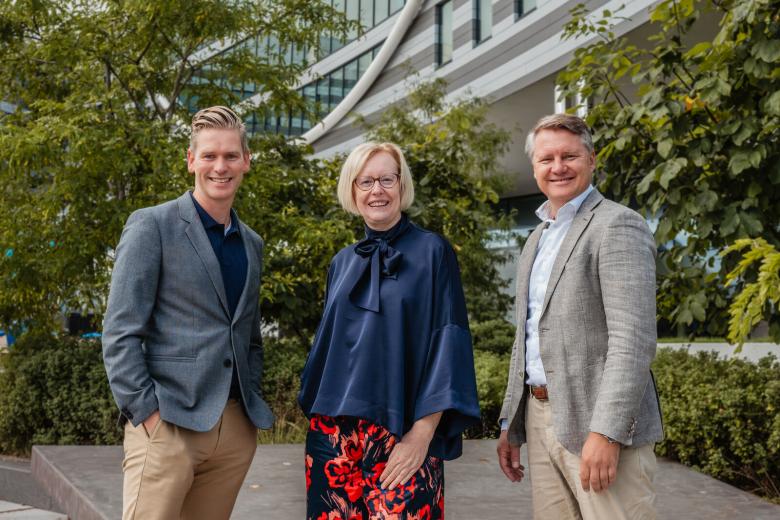Twee SBE onderzoekers ontvangen een Marie Curie beurs
Roman Briker en Fynn Gerken, twee getalenteerde van de School of Business and Economics (SBE), hebben onlangs een Marie Sklodowska Curie Postdoctoral Fellowship gekregen voor hun onderzoek naar kunstmatige intelligentie.
-- De overige tekst is Engelstalig --
Provided by the European Commission, the goal of these fellowships is to support excellent individual researchers to implement an original and personalized research project while developing their skills through advanced training, international, interdisciplinary, and inter-sectoral mobility.
AI in the lead? When, why, and how AI leadership will (not) work
Roman Briker’s project will look into how employees react – in terms of satisfaction and performance – when an AI attempts to motivate or inspire them, the same way their manager might. For this project, Roman and his team will collaborate with Simon De Jong, Fabiola Gerpott (WHU – Otto Beisheim School of Management) and Yochanan Bigman (Hebrew University Jerusalem).
Given the rise of AI managers within Europe, this research will provide relevant scientific, practice, and policy insights aimed at sustaining a high-performing and satisfied European workforce of the future.
“This fellowship is an amazing opportunity and I feel honoured to receive a grant that is named after one of my academic idols (Marie Curie). This will give me freedom and resources to conduct a research project that is not only super interesting for me personally but hopefully will be useful for the wider public.”

The causes and consequences of firms’ focus on AI
Fynn Gerken’s project will focus on what motivates firms to focus on AI and the resulting consequences for efficiency, innovation, and employment. There is a lot of buzz around AI’s technological capabilities, making it often difficult to distinguish hype from facts. What we currently lack is empirical evidence on the firm level.
In his research, Fynn aims to understand what incentivizes firms to develop AI capabilities and its economic consequences to support policymakers in their decision-making.
“I am very excited about the fellowship. I feel grateful to receive this great opportunity and cannot wait to start my project.”

Lees ook
-
SBE-onderzoekers betrokken bij NWO-onderzoek naar de rol van de pensioensector in de duurzaamheidstransitie
SBE-hoogleraren Lisa Brüggen en Rob Bauer maken deel uit van een nationaal, door NWO gefinancierd initiatief dat onderzoekt hoe Nederlandse pensioenfondsen de overgang naar een duurzame samenleving kunnen versnellen. Het project van € 750.000 heeft als doel om pensioenbeleggingen af te stemmen op de...
-
Universiteit Maastricht, BDO en AFAS gaan onderzoek doen naar duurzaamheid bij familiebedrijven
Maastricht University Center for Entrepreneurship and Innovation, BDO Accountants en Adviseurs en AFAS Software gaan onderzoek doen naar de uitdagingen en kansen voor Nederlandse familiebedrijven ten aanzien van de ecologische verduurzamingsopgave
-
Prestigieuze Europese beurs voor drie UM-onderzoekers
Drie onderzoekers van Universiteit Maastricht (UM) ontvangen een prestigieuze ERC Starting Grant van de European Research Council. Ze krijgen elk 1,5 miljoen euro. Hun financiering is onderdeel van het EU Horizon Europe-programma.